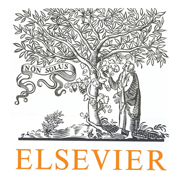دانلود ترجمه مقاله مروری بر توسعه رهبری در محیط های آموزشی
| عنوان فارسی |
مروری بر رهبری و توسعه رهبری در محیط های آموزشی |
| عنوان انگلیسی |
A review on leadership and leadership development in educational settings |
| کلمات کلیدی : |
رهبری مدرسه؛ توسعه رهبری؛ رهبری برای یادگیری؛ اثربخشی مدرسه؛ رهبری؛ توسعه حرفه ای |
| درسهای مرتبط | مدیریت رفتار سازمانی |
| تعداد صفحات مقاله انگلیسی : 16 | نشریه : ELSEVIER |
| سال انتشار : 2019 | تعداد رفرنس مقاله : 103 |
| فرمت مقاله انگلیسی : PDF | نوع مقاله : ISI |
|
پاورپوینت :
ندارد سفارش پاورپوینت این مقاله |
وضعیت ترجمه مقاله : انجام نشده است. |
1. مقدمه 2. رهبری در آموزش 3. اهداف و پرسش های تحقیق 4. روش 5. یافته ها 6. بحث و بررسی 7. نتیجه گیری

در دهه های گذشته، رهبری توجه زیادی را به خود جلب کرده است که این بخاطر رشد مسئولیت های مدیر مدرسه و زمینه مسئولیت محوری است که در آن کار می کنند. اما، مرورهای ادبی انجام شده که یک نمای کلی از نظریه های رهبری موثر مدرسه و توسعه حرفه ای موثر را ارائه می دهند، معدود هستند. مرور ادبی حاضر برای خلاصه سازی ادبیات موجود و کشف کمبودها در پژوهش رهبری مدرسه در پیش دبستانی ها، مدارس ابتدایی و دبیرستان ها می باشد. 75 مطالعه که بر نظریه های رهبری متمرکز هستند، همچنین مشخصات رهبری موثر مدرسه و توسعه حرفه ای رهبران مدرسه، پیدا و مورد تحلیل قرار گرفتند. مقاله حاضر، یک نمای کلی از نظریه های رهبری اصلی مانند رهبری دستوری، رهبری وضعیتی، رهبری تحول آفرین، رهبری توزیع شده و رهبری برای یادگیری، را ارائه می دهد. دوم اینکه، مقاله حاضر بر مشخصات رهبری موثری مدرسه تاکید می کند و در آخر، این مرور ادبی، ویژگی های فعالیت های توسعه حرفه ای موثر برای مدیران مدرسه را ارائه می دهد. مقدمه: رهبری در آموزش و پرورش اغلب زیر ذره بین قرار می گیرد که عمدتاً بخاطر مسئولیت های رو به رشد برای مدیر مدرسه و زمینه مسئولیت پذیری محوری است که در آن کار می کنند (هیت و تاکر، 2016؛ لیت وود، 2010؛ موجیس، 2010). مدیریت مدارس از اهمیت حیاتی برای مدیریت دولتی بخصوص در کشورهای OECD برخوردار است بطور میانگین 13% از مخارج کلی دولتی صرف آموزش و پرورش می شود (OECD، 2013). این ادبیات بر تاثیر رهبری بر اثر بخشی مدارس تاکید می کند. مدیران مدرسه، ظرفیت قابل توجهی در ایجاد محیط های یادگیری برای معلمان و دانش آموزان، در بهبود پیامدهای یادگیری دانش آموز از طریق تاثیرشان بر معلمان، و در سیاست و فرآیندهای سازمانی، تاکید می کند (هالینجر، بیکمن و دیویس، 1996؛ هالینجر و هک، 1998؛ هیت و تاکر، 2016). به مدت چندین دهه، رهبری در آموزش و پرورش موضوع پژوهش بوده است و باعث حاصل شدن رویکردن های متعددی برای رهبری شده است، مانند رهبری دستوری، رهبری وضعیتی، رهبری تحول آفرین و رهبری توزیع شده. چندین نظریه رهبری به صورت انتقاد از نظریه های قبلی یا به صورت تعمیم یا تجمیع نظریه های موجود، پدیدار شدند. با خلاصه سازی تکامل نظریه های رهبری مدرسه، مشخصات رهبری موثر و عناصر تجویز کننده برای توسعه رهبری مدیران مدرسه، این مطالعه توصیه هایی برای پژوهش های آتی ارائه می دهد. با شروع از یک رویکرد مرور ادبی روایتی، یک نمای کلی از نظریه های رهبری در آموزش و پرورش ارائه خواهد شد. سپس، براساس یک مرور ادبی نظام مند از ادبیات، این مقاله بر شیوه های رهبری موثر و توسعه رهبری مدیران مدرسه، تاکید می کند.
Leadership gained a lot of attention during the past decades because of school principals' growing responsibilities and the accountability-driven context they work in. However, reviews providing a general overview of effective school leadership theories and effective professional development are rare. The present review was conducted to summarise the existing literature and discover lacunae in school leadership research in preschools, primary and secondary schools. 75 studies focusing on leadership theories, characteristics of effective school leadership and school leaders’ professional development were included and analysed. The present article provides an overview of main leadership theories such as instructional leadership, situational leadership, transformational leadership, distributed leadership and Leadership for Learning. Second, the article focuses on the characteristics of effective school leadership and lastly, the review offers features of effective professional development activities for school principals. Introduction: Leadership in education often stands in the spotlight, mostly because of growing responsibilities for school principals and the accountability-driven context they work in (Hitt & Tucker, 2016; Leithwood, 2010; Muijs, 2010). The management of schools is of vital importance to public administration as in OECD-countries (Organisation for Economic Co-operation and Development) on average 13% of total public expenditures is spent on education (OECD, 2013). The literature emphasizes the impact of leadership on the effectiveness of schools. Principals have a considerable potential in creating learning environments for teachers and students, in enhancing student-learning outcomes through their influence on teachers, and in organisational policy and processes (Hallinger, Bickman, & Davis, 1996; Hallinger & Heck, 1998; Hitt & Tucker, 2016). For decades, leadership in education has been subject to research and resulted in numerous approaches of leadership e.g. instructional leadership, situational leadership, transformational leadership and distributed leadership. Several leadership theories emerged as a critique on previous theories or as an extension or aggregation of existing theories. By summarising the evolvement of school leadership theories, the characteristics of effective leadership and prescriptive elements for the development of school principals' leadership, the study provides directions for future research. Starting from a narrative review approach, an overview of the leadership theories in education will be provided. Then, based on a systematic review of the literature, the paper focuses on effective leadership practices and school principals’ leadership development.





دیدگاهها
هیچ دیدگاهی برای این محصول نوشته نشده است.